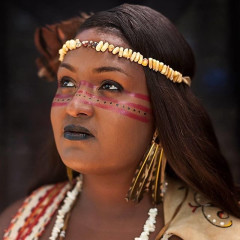What was your first job out of college?
Adam Platt: First job out of college, not to do with food, I was a business reporter in Hong Kong, I wrote about the Chinese economy for a company called Business International. I did that for 2 years and I sort of said to myself; at this point I could keep on overseas- but I thought I should try to make a home somewhere, but still have the access to travel. So I went to the Journalism School of Columbia in the eighties, and I decided there I wanted to be a more long form magazine writer. After journalism school, I had a bunch of different jobs; I worked for Newsweek, I was a writer for the New Yorker, I was a columnist for the New York Observer. New York Magazine- the great critic there was Gael Greene, and she was there for years, and she decided to retire 15 years ago and an editor I had worked with at another magazine asked me if I’d like to take a shot at being a restaurant critic. Since it involved a real salary and health benefits and it was a good column, I thought... why not? You know, I like to eat.
Do you remember what your first few weeks on the job were like?
I’ll tell you one thing that was interesting, there are two kinds of food writers, I think. The writers who- I said this before and I’ll say it again; there are food writers who write about what’s on the plate in great detail, they write about recipes, they focus on the plate, they write about food that way. Then there are the writers who write about the experience of eating food; Calvin Trillin is a great example, The New Yorker writer, he wrote about the experience of eating. I sort of figured out quite quickly that I would have to to be that kind of writer.
Food is fun to write about, but I quickly found out that the more you try to describe what was on the plate, it was sort of like a swamp, you get sort of gummed-up in these fancy words which i didn’t want to use. You just get lost. It’s hard to do really well, writing about food. I figured out that I couldn’t do it great, but I could describe the scene and describe the pleasures of eating, so that’s the kind of writer I became.
The third or fourth place I reviewed, I remember it was a French restaurant, and in those days, I’m not an anonymous critic now, but in those then you were supposed to be anonymous. It was this place called Le Périgord, which is still there! Very experienced, old, old-fashioned french restaurant. But, they had a new chef, so I went over there. You always try to find different kinds of restaurants to review, you don’t want to do the same place year after year, week after week.
So, I went for lunch. I was wearing my jacket, and the gentleman greeted me, he was wearing a bow tie, the matradee- he’s also the owner. So, he leads me to this little table by the kitchen- not a very good table, sitting there- like kitchen, waiters coming out. So, he gives me a red menu and so, I look at it, I pretend to study it and I go- “Uhh… so, what’s good today?”.
Do you normally ask that?
Whatever, he was looming over me, and he wouldn’t leave! I was like, “What’s good today?” he goes “Well, you tell me monsieur, you’re the critic”, so he knew, he already knew. That’s the thing in New York- especially in a place like New York where there’s a lot of money at stake, they’re very professional. They know who you are- it’s their business to know, It’s their job to know who you are. So, he knew who I was immediately, even though I hadn’t been on the job for more than a month.


.jpg)
.jpg)



.jpg)
.jpg)
.jpg)




.jpg)